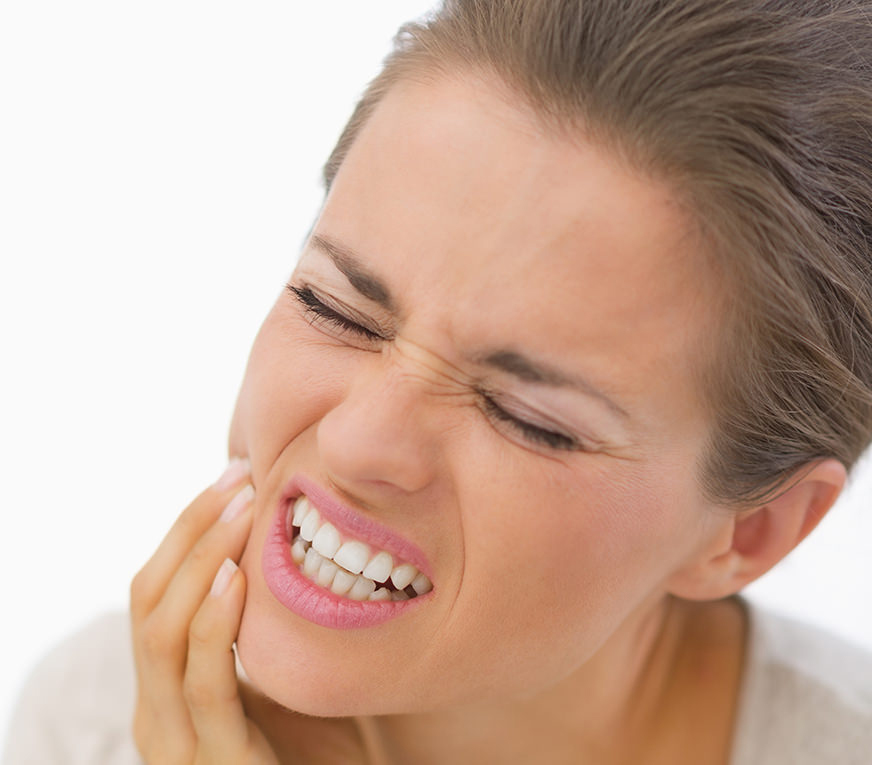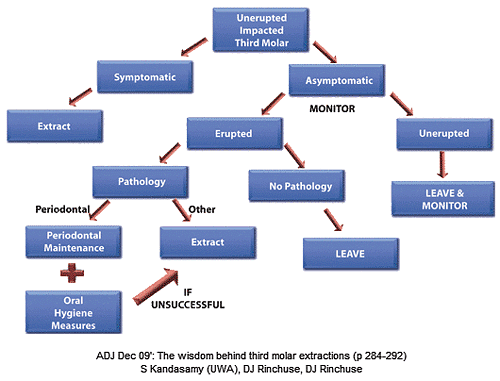A tooth becomes impacted due to lack of space in the dental arch and its eruption is therefore prevented by gum, bone, another tooth or all three. Lack of space occurs because our jaws have become smaller (through evolution), we do not loose teeth through decay as frequently as in the past, and our diet is such that our teeth do not wear down as much.
Wisdom teeth generally cause problems when they erupt partially through the gum. The most common reasons for removing them are:

It is now recommended by specialists that if impacted wisdom teeth need to be removed, this is best done between the ages of 14 and 22 years. At this time surgery is technically easier, patients recover more quickly and the risk of complications is much lower. This is a relatively easy procedure in a patient at the age of 20, however it may become very difficult in a patient over 40 years of age.
Not all wisdom teeth require removal. The following diagram summarises the management of wisdom teeth:
If you are going to an area where specialist dental services are not available and your wisdom teeth are impacted, it may be advisable to have them removed beforehand.
Should an impacted wisdom tooth be removed if it hasn't caused any trouble? There is always a risk that impacted wisdom teeth may cause problems at any age. Such problems may occur suddenly and at inconvenient times. If the wisdom teeth appear to have a high probability of causing problems, your oral surgeon may advise you to have them removed.
It depends upon the level and severity of infection. If there isn’t too much swelling, removal can be performed on the day. However, surgery in the presence of severe infection can cause it to spread and become more serious. In these cases, the infection must be controlled with antibiotics, local oral hygiene and sometimes the extraction of the opposing wisdom tooth.
